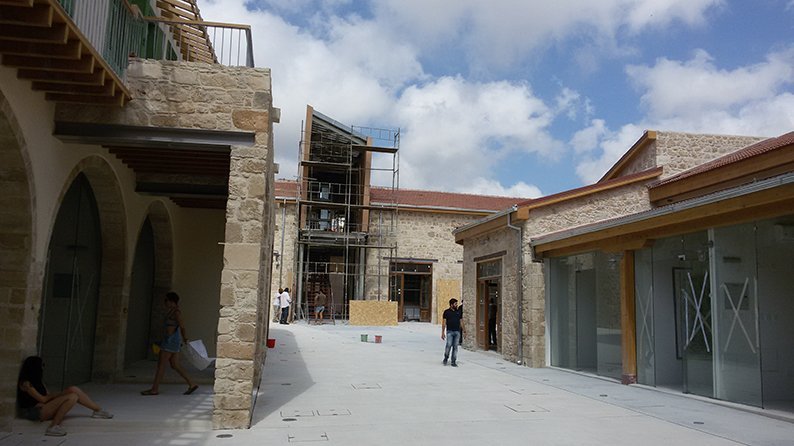There is “no reason for concern” among Greek Cypriots living on land owned by Turkish Cypriots who are now demanding that the land be returned to them, the interior ministry said on Friday.
The ministry insisted that the authorities had taken control of the land, which is located in the Paphos district village of Timi, and other Turkish Cypriot property after the Turkish invasion in 1974 “exclusively to protect them”.
It added that it had taken control of the properties “through legal and constitutional arrangements”, and that the properties had been made available to Greek Cypriots who had been displaced from the island’s northern third in 1974.
“These arrangements are temporary and will end with the end of the disorderly situation created by the Turkish invasion and the ongoing occupation,” it said.
In addition, it said, properties can be relinquished from this “guardianship” in cases where Turkish Cypriot owners of properties “have not illegally appropriated Greek Cypriot properties and wish to be settled in the free areas or who meet specific legal requirements”.
Such cases, it added, “are treated positively, while ensuring the rights of displaced persons affected by these arrangements”.
It then made specific reference to the case of the property in Timi, saying there is “no legal or other basis which would legitimise the eviction letter sent by the owner”, and that the Paphos district court had previously rejected the property’s owner’s request to regain control of the property.
“Therefore, we clarify that there is no reason for concern among the displaced persons residing there,” it added.
It said that it will “continue to implement the procedures provided for by law in relation to Turkish Cypriot properties, respecting the rights of Turkish Cypriot owners with regard to their properties”.
At the same time, it added, the government is “working primarily to safeguard the interests” of Greek Cypriot displaced persons, “who have continued to suffer the consequences of the Turkish invasion for the last 51 years and will continue to do so until the resolution of the Cyprus problem and the recovery of their properties”.
A representative of the owner of the property in Timi had addressed a letter to Ierokipia mayor Nikos Palios, Timi deputy mayor Georgios Polykarpou, and House refugee committee chairman and Akel MP Nikos Kettiros, among others, demanding that the property be returned.
“Due to the many efforts our clients have made, and as we have not received any response from the Republic of Cyprus, as well as the fact that it refuses to cooperate for the issue to be resolved out of court, we have no other choice but to take all legal judicial measures,” the letter read.
“These are directed against the persons residing in the settlements, that they abandon them and freely hand over possession of them to our clients, who, in any case, have been illegally and arbitrarily deprived of the right to use their own property.”
The letter also pointed out that the property’s owner, Dervise Kahya, has lived in the United States since 1970, and said that there is therefore no legal justification for the property to have come under the guardian of Turkish Cypriot properties, “let alone to have settlements arbitrarily erected on them”.
“Our clients have made many efforts over the last 13 years to find a solution,” the letter added, saying that no result has yet been achieved.
The controversy over the use of the Turkish Cypriot property in Timi comes amid a series of arrests and criminal cases being carried out over the alleged development of Greek Cypriot property in the north.
Two Hungarian nationals were handed prison sentences over the matter earlier this month, with the pair having admitted to promoting and advertising the sale of houses near Kyrenia on the internet.
Meanwhile, the case of a German national who reportedly spoke about selling property in the north to an off-duty police officer during a flight to Larnaca is ongoing, and arrest warrants have been issued for four Turkish nationals in connection with developments in the Famagusta district village of Lefkoniko.
Turkish Cypriot leader Ersin Tatar had described the arrests as “acts of terrorism” and even refused to meet President Nikos Christodoulides in response to them, saying it is “not possible to talk about a healthy dialogue” between Cyprus’ two sides in such circumstances.
Christodoulides earlier this week insisted that the arrests “will certainly not stop, no matter what Tatar says”, adding that “illegality cannot be justified in any way”, but also somewhat distanced himself from the arrests, insisting that “we do not interfere in the judiciary”.







Click here to change your cookie preferences